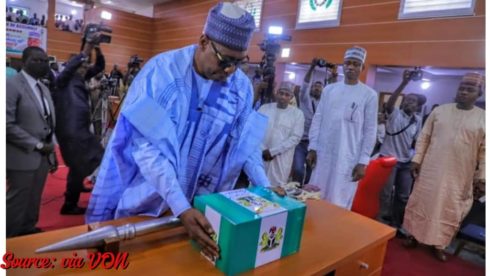Professor Babagana Zulum, Borno State Governor, has submitted a request to the Borno State House of Assembly for an additional ₦61 billion to supplement the 2024 fiscal year budget. Initially approved at ₦358.7 billion and signed into law in January, the budget increase is necessary to address critical infrastructure damage resulting from recent natural disasters. Governor Babagana Zulum emphasized the urgent need to fund recovery efforts, particularly in areas devastated by flooding and other emergencies.
The proposed funds will focus on rebuilding essential infrastructure, improving disaster response capabilities, and restoring essential services disrupted by the floods. The governor’s request underscores the importance of prompt government action in disaster-stricken areas, highlighting Borno’s vulnerability to extreme weather conditions and the need for comprehensive recovery plans.
Governor Babagana Zulum – Maiduguri Floods Prompt Emergency Relief and Reconstruction Plans
The September 10th, 2024, flood in Maiduguri, Borno’s capital, had a devastating impact on nearly two million residents. The natural disaster submerged large parts of Maiduguri and nearby local government areas, causing widespread damage to homes, roads, and other critical infrastructure. Many residents were displaced, while others faced severe disruptions in access to basic services.
In response to the crisis, Governor Babagana Zulum’s supplementary budget prioritizes emergency relief and humanitarian aid for those affected. The government plans to allocate a significant portion of the ₦61 billion towards providing immediate relief supplies, such as food, water, and shelter, as well as long-term rehabilitation efforts to assist those displaced by the flood.
Infrastructure Damage Forces Focus on Rebuilding Key Sectors – Babagana Zulum
The flood caused extensive damage to vital infrastructure, including transportation networks, health facilities, and educational institutions. Bridges and roads were washed away, complicating efforts to deliver aid and essential services. Furthermore, many public buildings, including schools and hospitals, were left inoperable, posing a major challenge to post-disaster recovery efforts.
Governor Babagana Zulum’s additional budget request is set to allocate substantial resources to rebuilding this critical infrastructure. Repairing roads, bridges, and restoring essential services are top priorities in the proposed spending plan. These reconstruction efforts will be crucial in stabilizing the region and preventing further disruptions to Borno State’s development goals.
Support for Farmers and Economic Recovery- Babagana Zulum
In addition to infrastructure recovery, the supplementary budget will focus on economic stabilization, with a particular emphasis on agricultural recovery. Borno is an agrarian state, and the floods had a crippling effect on farmlands, leaving many farmers without the means to resume production. Thousands of hectares of crops were destroyed, resulting in food insecurity and economic distress among farming communities.
To mitigate the economic fallout, the government will channel part of the ₦61 billion to provide financial and material support to affected farmers. The funds will be used to supply agricultural inputs, such as seeds, fertilizers, and equipment, to help farmers recover their livelihoods. This is seen as a critical component of Borno’s broader strategy to restore food security and ensure long-term economic resilience.
Environmental Management and Disaster Preparedness
Environmental management is another key area addressed by the supplementary budget. The government plans to invest in flood control measures and sustainable land management practices to prevent future disasters. This will include the construction of dams, drainage systems, and other infrastructure aimed at mitigating the impact of extreme weather events.
In addition, the budget will support disaster preparedness programs aimed at equipping communities with the knowledge and tools to respond effectively to future crises. Governor Babagana Zulum’s administration is committed to building a more resilient Borno State, capable of withstanding the challenges posed by climate change and environmental degradation.
Humanitarian Aid and Social Welfare Programs
The humanitarian crisis caused by the Maiduguri floods has underscored the need for an expanded social welfare system in Borno State. The proposed supplementary budget includes provisions for bolstering the state’s social welfare programs, focusing on vulnerable populations such as women, children, and the elderly. Efforts will be made to enhance social protection measures and provide targeted assistance to those most affected by the disaster.
Governor Babagana Zulum has also highlighted the importance of collaboration with international aid organizations to ensure effective delivery of relief efforts. The supplementary budget is designed to enhance coordination with these organizations, ensuring that resources are used efficiently to address the immediate needs of affected communities while laying the groundwork for sustainable recovery.
Table of Contents
Discover more from OGM News NG
Subscribe to get the latest posts sent to your email.














